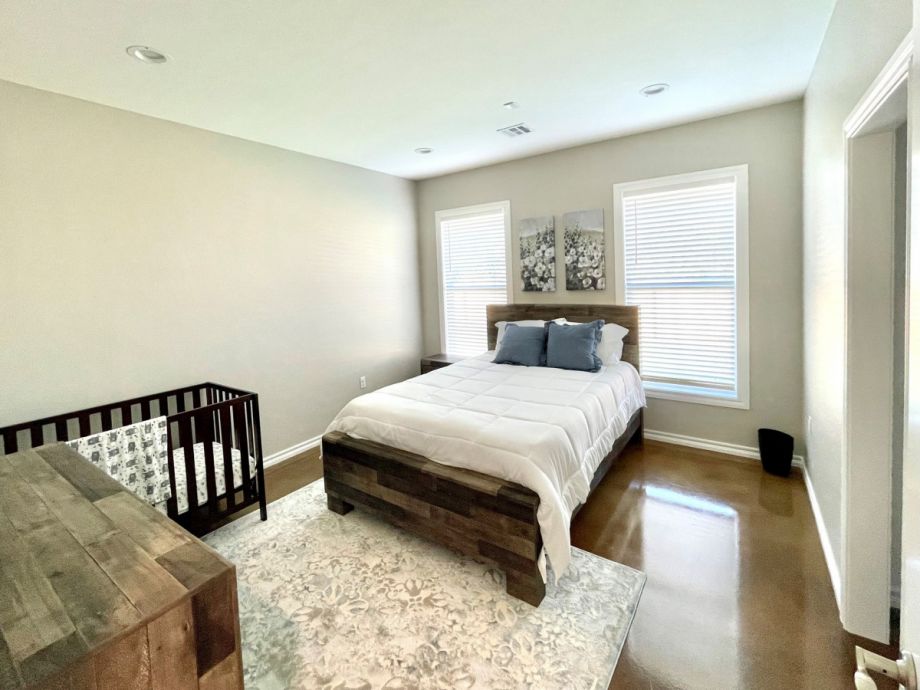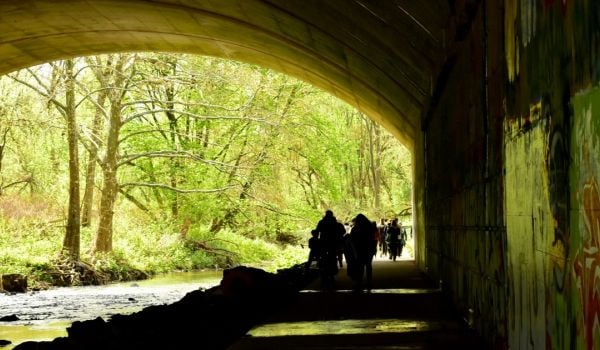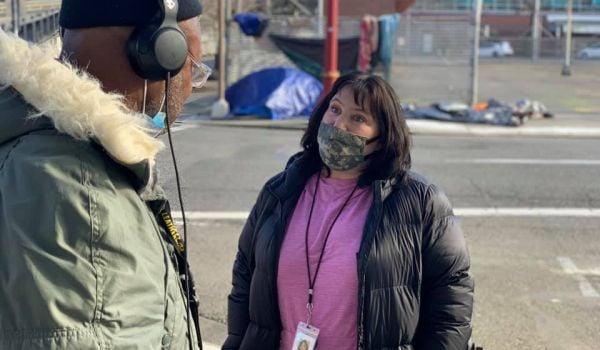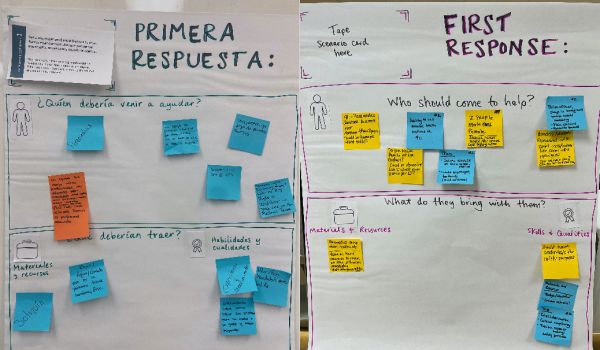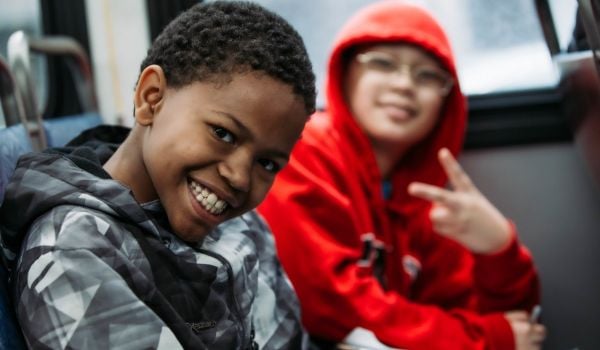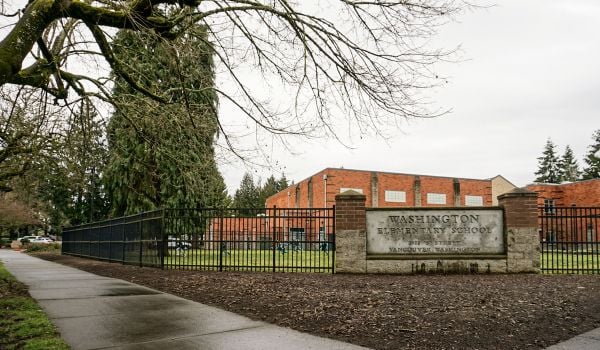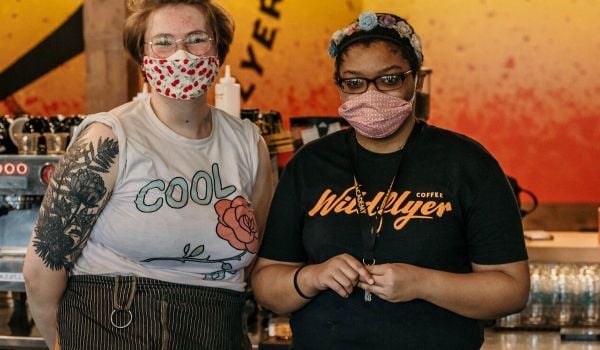There are generally two different ways to receive mental health services. Outpatient treatment options take place during the day, sometimes for the whole day, but the patient goes back home at night. The alternative is inpatient treatment during which patients receive treatment and support in a facility where they live and sleep for the duration of the program.
The lack of treatment options in between these two extremes leaves families seeking mental health services for their children in a difficult position: Children are either removed from their homes and families to get the intensive treatment they might need, or they’re left with outpatient options that may not offer the necessary level of care. In both scenarios, it’s the child who is receiving these mental health services while their family system —whether biological, adoptive or a foster family—is getting little, if any, care or coaching.
Grand Lake Mental Health, a certified community behavioral health clinic that serves 12 counties in northeastern and central Oklahoma, is looking to change that with its new brief stay therapeutic home for kids and their families. Nearly two years to the day after the idea was first conceived, Grand Lake just welcomed its first family to the 2,100-square-foot single-family home in Bartlesville in late October. And thanks to recent grant funding, Grand Lake will break ground on a second brief stay home in Claremore in January.
The home is designed to fill this vast middle ground space with something of a third option for families: a five-day stay as a family unit, where both the kids and their families get the treatments and support they need to address a child’s mental health needs as a family.
With inpatient services, “what you have is a kid who is receiving better coping skills and ways to interact with family members, and then they go home directly into the environment they left from,” explains Josh Cantwell, Grand Lake’s COO. “Let’s say a kid is 10 years old and they go to treatment for six months. That’s 5% of their life that they’ve been away from their parents. Then they come back to an environment where nothing has changed.”
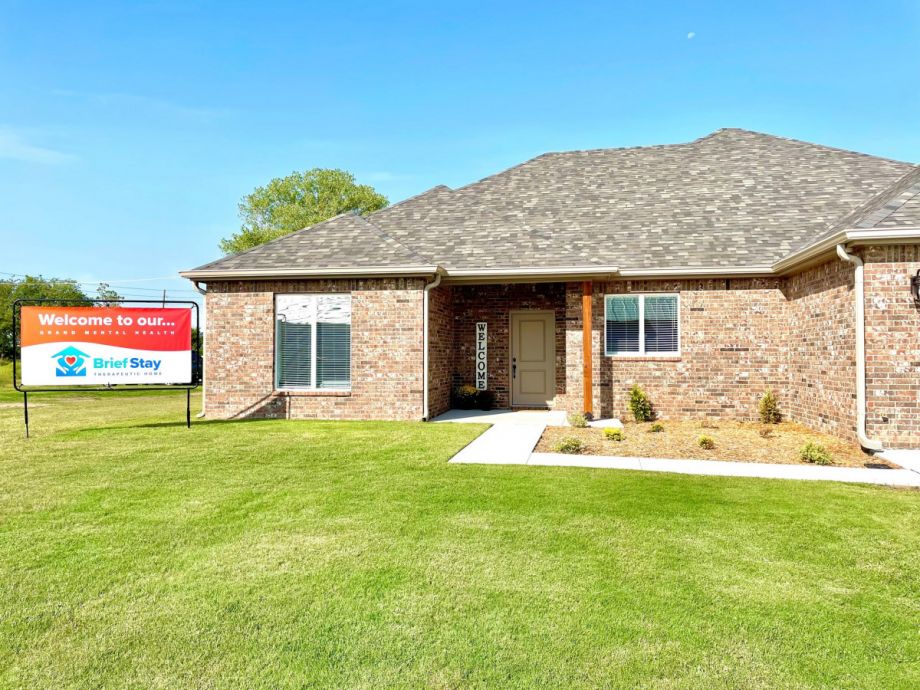
(Photo courtesy GRAND)
Grand Lake’s brief stay home is designed to mitigate that difference with one outcome-focused goal in mind: Keeping kids in their homes while providing the most efficacious services in the least restrictive environment possible in order to make lasting improvement to the functions of the family unit as a whole.
“When you treat someone in a lower level of care [than they need], it just doesn’t work. If you treat someone in a higher level of care, it doesn’t have the effectiveness and sometimes it’s traumatic,” Cantwell explains.
So, in partnership with a local builder, Grand Lake built out a roughly $450,000 ligature-proof home—one in which every detail, from shatter-proof glass to a lack of sharp corners or objects that can be used for self-harm, is considered to mitigate risks. In every room besides the bedrooms and bathrooms, the house is outfitted with cameras and microphones so therapists can review what’s happening even outside of the 7 a.m. to 9 p.m. hours when staff are usually in the home.
The Bartlesville site was chosen because of its central location across the vast rural region which Grand Lake serves. “We knew we wanted families to be able to continue to go to work. We wanted kids to be able to continue to go to school,” Cantwell adds. “We wanted [the families] to be close to the natural supports they already have, too.”
Clinically, the brief stay home relies on evidence-based practices like parent-child interaction therapy, or PCIT, that focuses on real-time coaching with in-ear devices so therapists can provide real-time feedback and assistance. The idea is that this helps parents learn to better manage their child’s behavior thanks to in-the-moment practice. “We know there are certain times during the day, especially early mornings and later in the evening, that are rougher times for families,” explains Jeff Harlin, Grand Lake’s chief clinical officer.
At Grand Lake’s new brief stay home, thanks to an iPad and headphones, parents can access the support they need whenever they need it. Then, even when they leave the home, the iPad—along with its worksheets, calendar reminders for appointments, and emergency help button that connects them with therapists whenever they need it—stays with them until the family discontinues Grand Lake’s services.
A close working relationship with Oklahoma’s Department of Human Services has been key to ensuring that the brief stay home was designed to meet the needs of Oklahoma’s children. Deborah Shropshire, the state DHS’s director of child welfare services, says that close collaboration bookended the project.
“They connected with us around ways that they thought it might serve families before they run into trouble, like foster families who are struggling to meet the behavioral needs of kids,” she says. “So, we were involved in some of the initial brainstorming, then they took the idea and ran with it. Now we’re kind of engaged again, this time around trying to imagine which families might need to be served.”
But Shropshire isn’t interested in the state’s cases filling up the home. “My intent is not to be the only user. We’re not interested in capitalizing on this in the sense that you have to be in child welfare to get to this.”
Instead, she says, the state is “really cheering for this being available to families so they don’t get in a spot where they feel like they can’t take care of their kiddos.”
For now, Grand Lake is starting out with each family staying for five days—moving in on a Sunday, getting care from Monday through Friday, and moving out on Saturday. But Cantwell is quick to explain that it might not stay this way, that the whole goal is to try something, assess it, and change if necessary.
“That’s what’s so valuable about the process of true outcome-based monitoring. Our team will… be able to make those determinations as time goes on,” he says. “So, by the time we build our second house, we’re going to know the things that need to be different.”
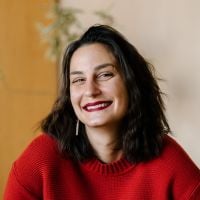
Cinnamon Janzer is a freelance journalist based in Minneapolis. Her work has appeared in National Geographic, U.S. News & World Report, Rewire.news, and more. She holds an MA in Social Design, with a specialization in intervention design, from the Maryland Institute College of Art and a BA in Cultural Anthropology and Fine Art from the University of Minnesota, Twin Cities.
Follow Cinnamon .(JavaScript must be enabled to view this email address)

